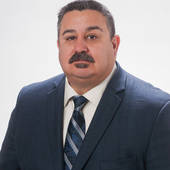Florida Senate Bill 2234 was. This law will prevent conflicts of interest; require education and licensing amongst other requirements for mold inspectors and removal companies alike. This law was designed to protect the consumers. The law will be effective in 2010; until then there are no requirements. "Caveat Emptor" "Let the Buyer Beware" when hiring a mold inspection company.
These few basic tips and information can help you avoid getting scammed and ensure that your mold issues are handled ethically, honestly and professionally. Take the time to read it. If you have any questions, please call us.
1. Make sure your mold inspector is not in the mold removal/remediation business.
We believe it's a serious conflict of interest for the company you pay to "inspect" for mold also profits from the "removal" of mold. There are plenty of companies out there that do both, the question is; how can you ever truly be sure that they are not creating more work for themselves - work that doesn't really need to be done? The opportunity for corruption is far too great. The only way to know for sure that you're not being "set up" and scammed into spending thousands of dollars you don't need to spend is to make sure the person you hire for mold inspections has no affiliation with any mold removal contractor.
2. Check your mold removal/remediation contractor's experienced and references.
AND CALL THE REFERENCES! Don't take anyone's word for it when it comes to shelling out thousands, perhaps tens of thousands of dollars for remediation work. Ask for references for jobs that are at least 10 to 12 months old. Why? Because every mold remediation job looks great as soon as it's finished. But if remediation work is not done correctly, it can take several months to realize it. As a rule, if mold does not reoccur in that time, then the work was done correctly. A remediation contractor, who has nothing to hide, has no problem giving you references. If a contractor gets offend by your request, say Good-Bye!
3. Never allow a contractor to provide clearance testing for his own remediation.
Many remediation contractors will offer to provide FREE clearance testing after they're work is complete. Nice gesture, but don't fall for it. The reason they do that is so they pass their own work and get paid. Also, they more than likely quoted you a firm price in order to get the work in the first place and if a third party inspector fails his post-remediation clearance test, he has to keep coming back until he gets it right. A "free clearance test" from a contractor offering to pass his own work is not a good deal for you. Always insist on an independent third party post-remediation clearance testing and make sure your agreement with the contractor states that he will come back and correct his work if it fails. And don't settle the account until you see the clearance report in writing and be sure to have a post-remediation clearance test that CLEARS your home before you pay your remediation contractor. If you agree to make progress payments, make sure the final payment is a significant percentage of the total job price so the contractor is motivated to finish the job correctly.
4. Ensure your contractor is a Florida Licensed Contractor.
Anyone can print "Licensed and Insured" on a business card but not everyone can actually pass the Florida Licensing Exam. Many remediation contractors will tell you that they don't need to be licensed but the truth is that each governing body of each Florida municipality has different requirements. Some municipalities require that you be licensed if your remediation work involves any other licensed contractor such as an electrician, plumber or Air Conditioning Contractor. Not many remediation jobs won't involve an electrician or plumber. Other municipalities require no license for those only conducting "repair" work or the removal and replacement of wallboard and cabinets. Regardless of the current status of any Florida municipality Governor Crist has recognized the need to provide Florida citizens a law that requires the licensing of all mold inspectors and remediation contractors and will no longer allow a remediation contractor to conduct his own testing or clearance. Senate Bill 2234 signed into law on June 28, 2007 effective 2010.

Comments(0)